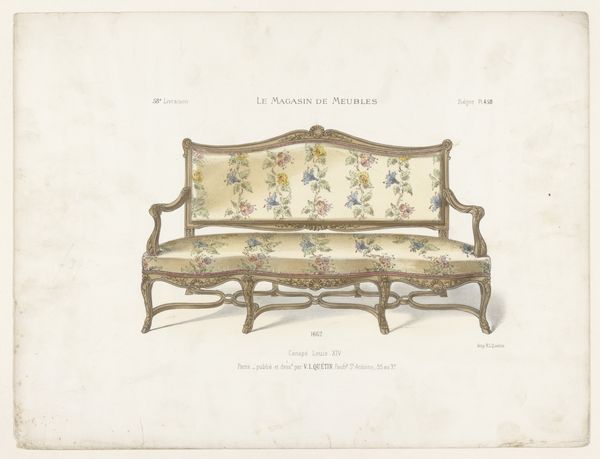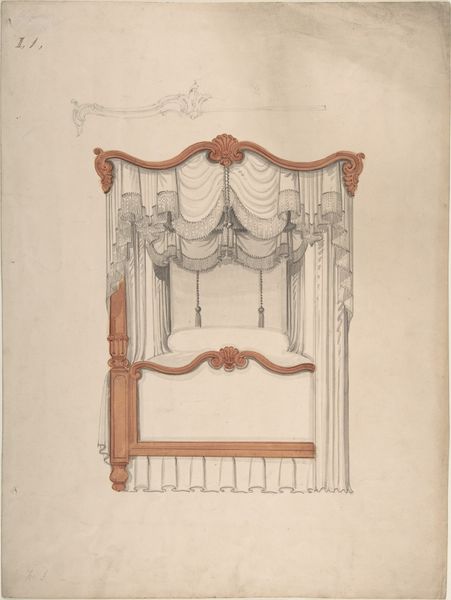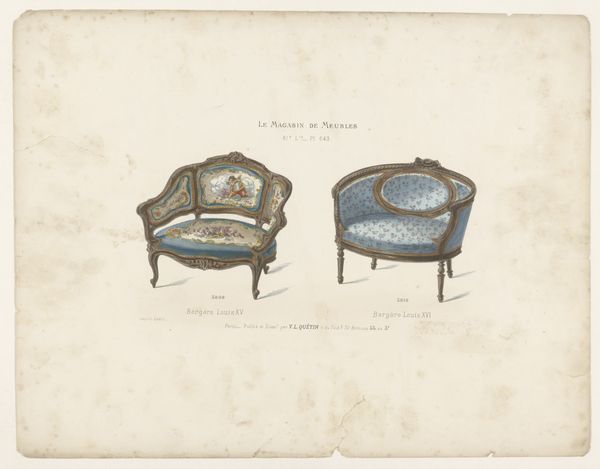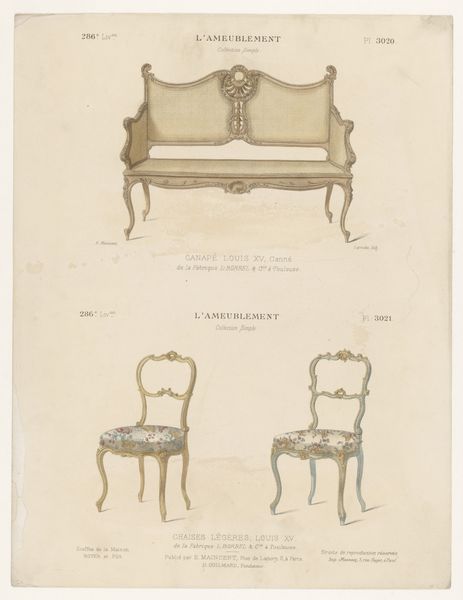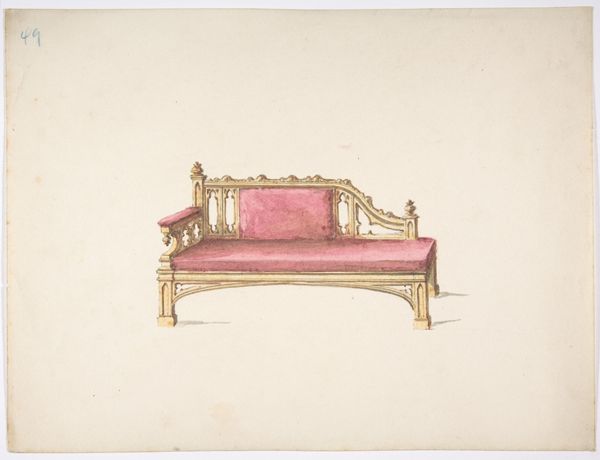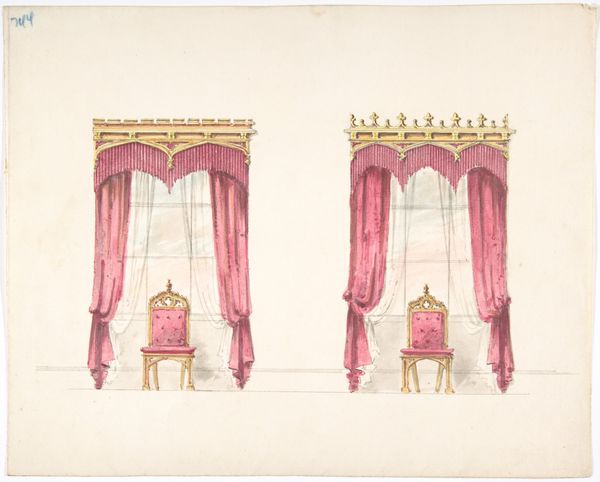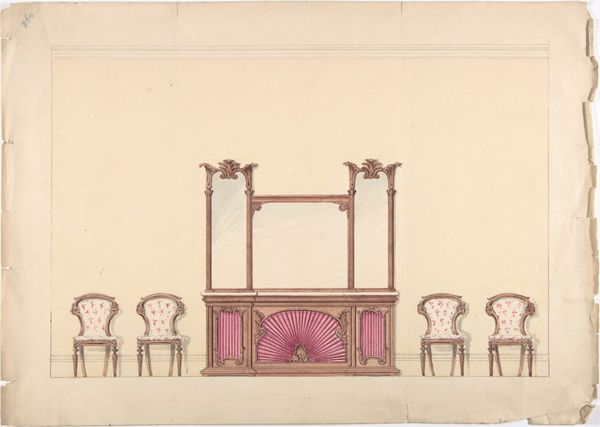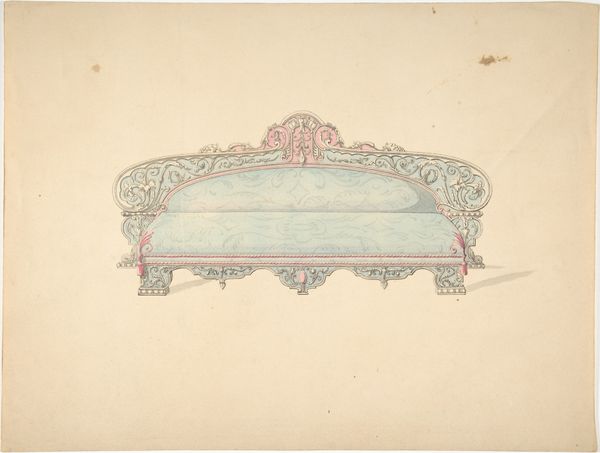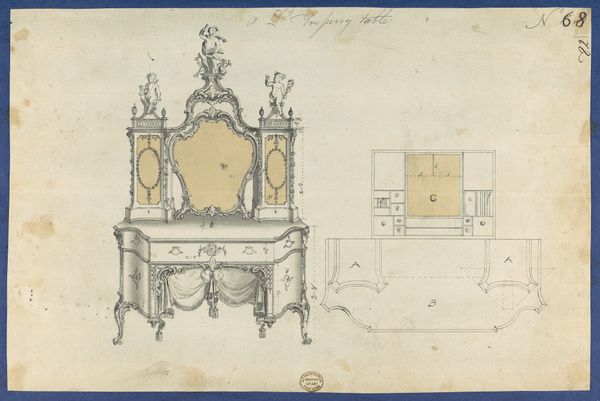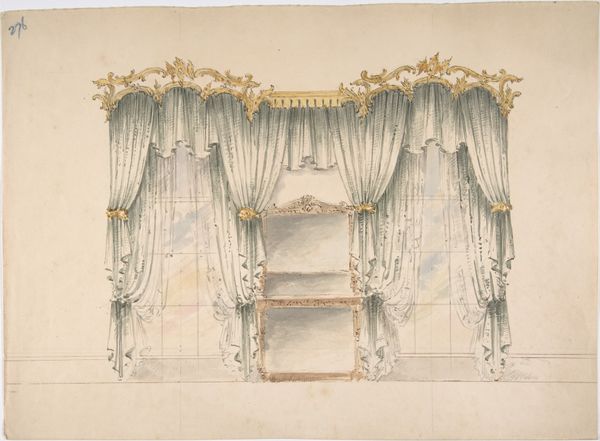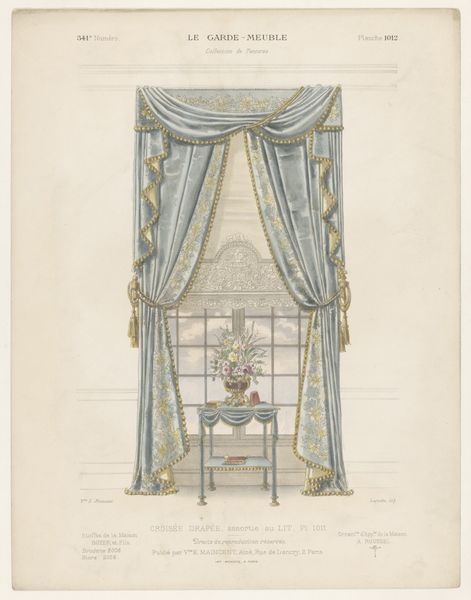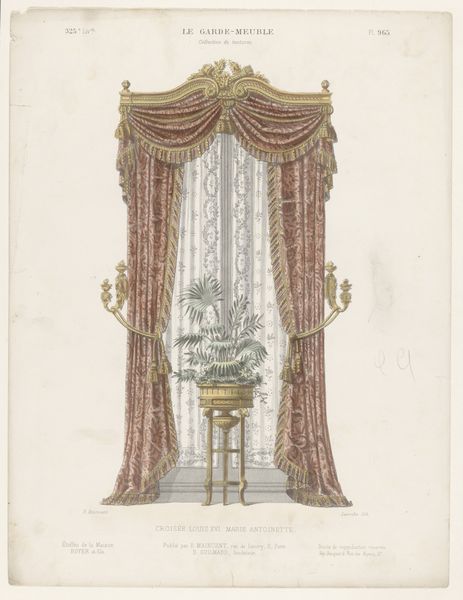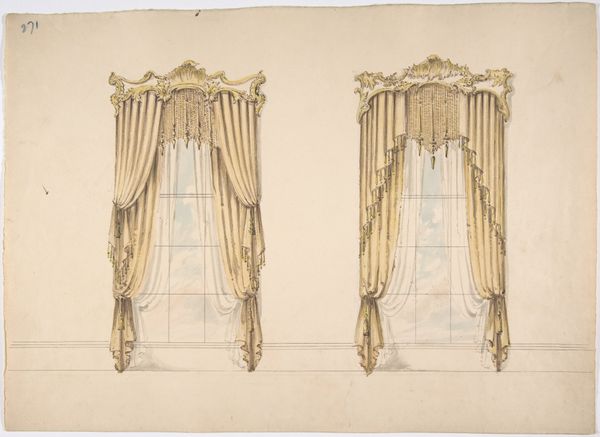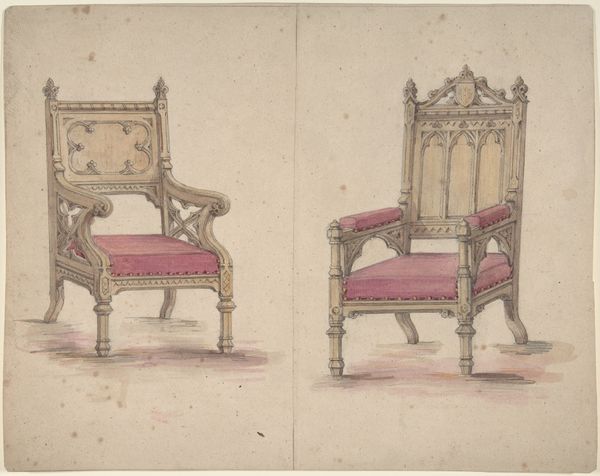
drawing, coloured-pencil, print, watercolor
#
drawing
#
neoclacissism
#
coloured-pencil
#
water colours
# print
#
furniture
#
personal sketchbook
#
watercolor
#
coloured pencil
#
romanticism
Dimensions: sheet: 9 1/2 x 9 1/2 in. (24.1 x 24.1 cm)
Copyright: Public Domain
Editor: This drawing, “Design for a Settee,” from the 19th century, appears to be a colored pencil and watercolor rendering. There is a delicacy to the piece and a kind of formality that comes through the symmetry and the ornate details of the furniture itself. What strikes you about this work? Curator: The interplay between line and color is certainly notable. Observe how the precision of the lines delineates the form of the settee, while the soft washes of color impart a sense of depth and texture. The artist uses color not merely to decorate, but to define the structure. Note the meticulous details around the curves of the design and the subtle color gradations used on the upholstery. These are not simply decorative flourishes; they contribute to our understanding of form and materiality. Editor: So you're suggesting that even in a design drawing like this, the artistic choices relating to color and line aren't just about visual appeal? Curator: Precisely. The overall composition reveals a careful balancing of elements. The horizontal orientation of the settee contrasts with the verticality of the legs, creating a stable yet dynamic form. How do you feel that contrast influences your experience? Editor: That’s interesting! The contrasting directions emphasize the object's groundedness and perhaps draw attention to the functional structure of the piece. I'm now wondering what other formal elements in design drawings, beyond historical context, can tell us. Curator: Exactly. By focusing on these intrinsic qualities, we come closer to the artist’s intention, even if that intention was primarily functional.
Comments
No comments
Be the first to comment and join the conversation on the ultimate creative platform.
